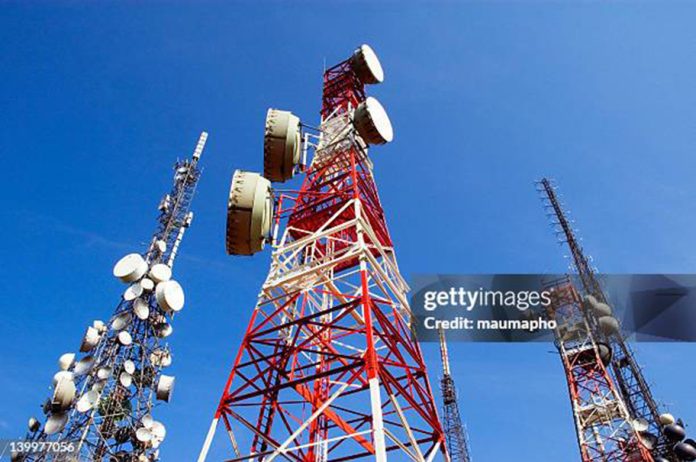While KPMG advises the government on options for AT Ghana’s future, the country grapples with challenges that have reshaped telecommunications markets across Africa. From Kenya to Rwanda, regulators have faced similar questions: What do you do when an operator can’t compete anymore? Regional experience suggests that how the problem gets solved matters even more.
The Pattern Across Africa
Walk through any African capital and you’ll notice something: the telecom billboards have changed. Brands that once dominated street corners have disappeared. In Rwanda, Tigo vanished after Airtel bought it in 2018. Kenya’s yuMobile is gone, absorbed by Safaricom and Airtel. Even markets that once supported five or six operators have quietly contracted.
The reason is not far from getting. Building cell towers costs money. Maintaining networks costs money. Upgrading from 2G to 3G to 4G to 5G costs serious money. In small markets, there’s only so much revenue to go around. When an operator’s subscriber base drops too low, the math stops working.
Ghana is seeing this play out in real time. AT’s market share has fallen from over 25% in 2018 to less than 8% today. Meanwhile, MTN has grown to control more than 70% of subscribers. That kind of market concentration worries regulators everywhere, but the alternative of propping up a failing competitor seems far from the solution.
What Happened to Consumers Elsewhere
Rwanda offers perhaps the clearest parallel. When Airtel acquired Tigo in 2018, the merged company became the second-largest operator, challenging MTN’s dominance. Regulators worried about reduced choice, but they also recognized that two strong operators might serve consumers better than three weak ones.
The results were mixed but generally positive. Network investment increased as the combined entity had sufficient scale to justify major infrastructure spending. Data prices stayed relatively stable, partly because regulators kept close watch. Rural coverage actually expanded rather than contracting, though that required explicit commitments as part of the merger approval.
Kenya tells a more complicated story. Safaricom dominates with over 60% market share, creating pricing power that regulators struggle to counter. When smaller operators like yuMobile failed, Safaricom and Airtel absorbed the subscriber base, but genuine competition remained elusive. The lesson in the above is very clear; market structure matters but so does ensuring the second player has real scale.
The Money Problem
Rescuing AT isn’t cheap. Industry analysis suggests any viable recovery path requires approximately $600 million over four years. That’s what it costs to modernize networks, expand 4G coverage, and prepare for 5G deployment in a competitive market.
AT owes over $150 million right now. Even if someone clears that debt tomorrow, it doesn’t solve the underlying problem. The company needs massive ongoing investment to compete. Financial investors have reportedly proposed capital injections starting at $150 million, but that number falls far short of what’s actually needed.
This is where operational capability matters as much as money. Telecommunications is not only about having cash, but it is also about knowing how to deploy spectrum efficiently, negotiate with tower companies, integrate different network technologies, and manage complex regulatory requirements.
Recent industry reports show some operators in Ghana are making these investments. MyJoyOnline recently, for example, highlighted Telecel Ghana’s 21% subscriber growth, suggesting the company has found ways to expand even in a challenging market. That kind of growth typically requires both capital and operational know-how.
What Happens in Rural Areas
One concern that often gets overlooked is what happens to connectivity outside major cities? In parts of Ghana’s northern regions, network choice is already limited. MTN dominates, which means subscribers have few alternatives when service falters or prices rise.
Any solution for AT needs to address this. Regional experience shows consolidation can actually improve rural coverage when stronger operators extend their networks into less profitable areas. But that only happens when regulators make it specific requirement, with measurable targets and real penalties for non-compliance.
Recent reports suggest Telecel has been expanding coverage beyond urban centres, though specific rural penetration data remains limited. What’s clear is that Ghana needs at least two operators willing to invest in infrastructure outside Accra and Kumasi. Relying on a single dominant player creates risks no regulator should accept.
The Competition Challenge
Ghana’s National Communications Authority designated MTN as a Significant Market Power operator in 2020, acknowledging the market concentration problem. That designation allows special regulations, but it can’t create competition by itself.
Real competition requires at least two operators with comparable scale and capability. International experience consistently shows that markets with strong number-two players deliver better consumer outcomes, lower prices, better service, and more innovation. Markets where the number-two player is weak or failing end up with de facto monopolies, regardless of what the regulations say.
What Regional Experience Teaches
As KPMG wraps up its assessment, Ghana can learn from what worked and what failed elsewhere in Africa. A few patterns stand out. First, throwing money at struggling operators without addressing operational weaknesses rarely works. Several markets tried pure financial rescues that failed because capital alone couldn’t overcome competitive disadvantages.
Second, regulatory oversight matters enormously. Markets where regulators set clear service quality requirements, monitored compliance actively, and imposed real penalties for failures saw better outcomes than those where decisions happened behind closed doors.
Third, speed matters. Markets that dragged out uncertainty for years watched service quality deteriorate, customer frustration mount, and infrastructure decay. Decisive action, even if imperfect, often produces better results than prolonged indecision.
Fourth, transparency helps. When regulators required clear public reporting on investment commitments and service levels, consumers fared better than in markets where deals were struck without public scrutiny.
For three million AT subscribers, the coming decision determines whether they get access to improving networks or watch service quality continue declining. Regional precedent suggests the outcome depends less on which specific path Ghana chooses than on whether it includes genuine investment commitments, clear service requirements, and serious regulatory oversight.
Regional experience offers guidance, but Ghana will have to chart its own course. What’s certain is that decisions made in the coming weeks will shape how millions of Ghanaians connect, communicate, and participate in the digital economy for years to come.
For more news, join The Chronicle Newspaper channel on WhatsApp: https://whatsapp.com/channel/0029VbBSs55E50UqNPvSOm2z









